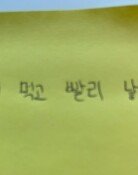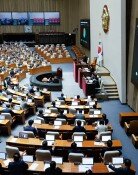Seoul’s military aid dilemma
Seoul’s military aid dilemma
Posted November. 29, 2024 08:01,
Updated November. 29, 2024 08:01
South Korea’s National Intelligence Service (NIS) officially confirmed for the first time on Oct. 19 that North Korea had deployed a significant number of troops to Russia. This development has shifted the Ukraine war from a distant conflict to a direct security threat for the Korean Peninsula. The presidential office issued a stern warning, pledging to work with the international community to deploy “all available means” in response.
On Oct. 24, President Yoon Suk Yeol suggested for the first time the possibility of providing lethal military aid to Ukraine, departing from South Korea’s previous stance. “We had maintained the principle of not directly supplying lethal weapons (to Ukraine), but this could be reviewed depending on North Korea’s actions,” Yoon stated. He explicitly mentioned the deployment of North Korean special forces to the war as a possible trigger for such aid, effectively drawing a “red line,” an implicit warning that any expansion of North Korea’s deployment or its engagement in lethal activities could prompt the South to provide military assistance.
Despite the warning, North Korea relentlessly expanded its troop deployments. According to the NIS, North Korean forces have been integrated into Russian airborne units for training, with some already participating in combat.
While the gravity of the situation has deepened, South Korea’s stance on providing weapons to Ukraine has notably softened. Ukraine, encouraged by earlier statements from Seoul, sent a delegation led by its defense minister to present a “wish list” of military aid. However, the South Korean authorities remain hesitant, citing domestic challenges and strategic concerns.
The hesitancy appears linked to the return of Donald Trump, who recently won the U.S. presidential election. Trump has consistently advocated for a swift end to the Ukraine war, a stance that South Korea cannot ignore.
With Trump’s officially returning to power soon, Seoul naturally finds itself in diplomatic hot water. And some analysts question why South Korea hinted at crossing its “red line” before the U.S. election results were finalized. Diplomatic insiders caution that such statements, without concrete follow-up measures, risk undermining credibility. “It’s like the boy who cried wolf,” one source said.
Ukraine’s heightened expectations further weigh on Seoul. Failure to deliver on perceived promises could sideline South Korea in Ukraine’s post-war reconstruction projects, estimated to be worth $50 billion. “Raising false hopes is worse than refusing outright from the beginning,” a government official admitted.
South Korea’s initial response to North Korea’s troop deployments was deniably half-baked and warranted criticism. However, the stakes are set to rise as Trump’s second term approaches and Ukraine’s requests for military aid grow more urgent. Meanwhile, Russia has issued stark warnings, with its deputy foreign minister cautioning that if South Korean weapons are used to kill Russian soldiers, bilateral ties could be irreparably damaged. The Yoon administration finds itself walking on a diplomatic tightrope, with relations involving the U.S., Russia, and Ukraine increasingly intertwined. Navigating this complex geopolitical equation may be the most pressing challenge for Yoon’s presidency as his term enters its latter half.






